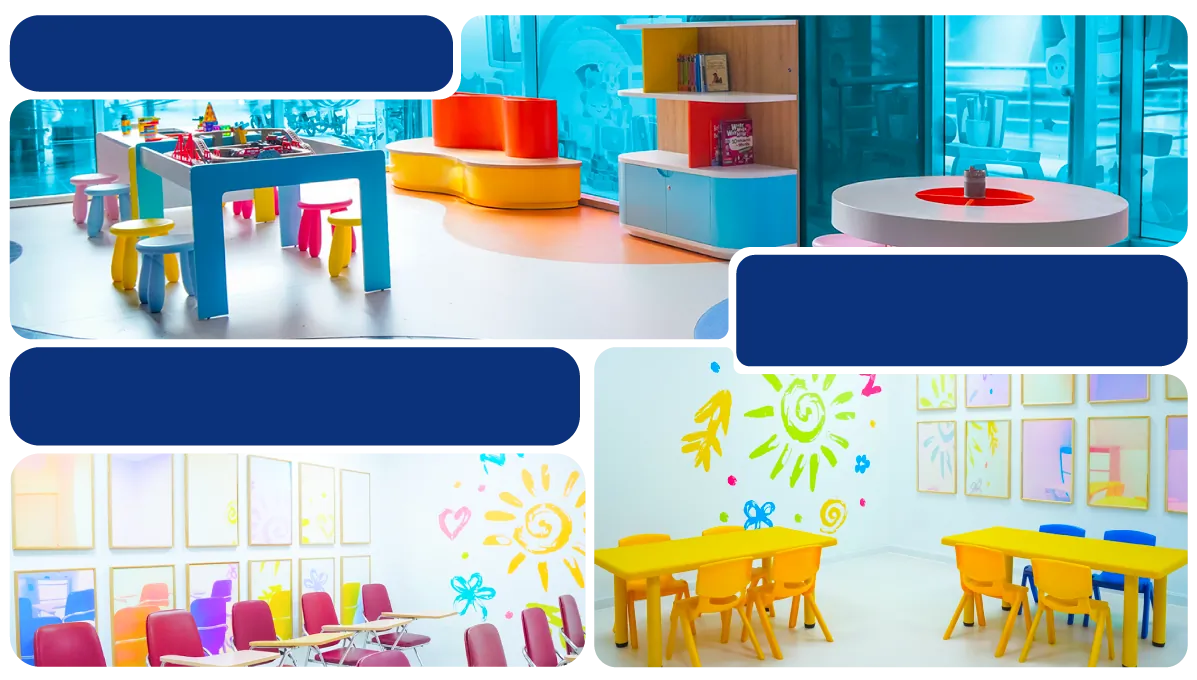IELTS Speaking Part 3: Bộ chủ đề, bí quyết trả lời & bài mẫu

IELTS Speaking Part 3 – “cửa ải” khiến không ít thí sinh chùn bước. Đây là phần thi yêu cầu bạn không chỉ nói trôi chảy, mà còn phải lập luận sắc bén, phản biện mạch lạc và triển khai ý tưởng một cách logic. Trong bài viết này, bạn sẽ được:
- IELTS Speaking Part 3 là gì: Cấu trúc và mục tiêu của phần thi
- Bí quyết trả lời hiệu quả: Chiến lược làm bài, cách phát triển ý và ví dụ mẫu
- Tổng hợp chủ đề thường gặp: Danh sách câu hỏi thật và bài mẫu band cao
Cùng tìm hiểu chi tiết và chinh phục IELTS Speaking Part 3 một cách tự tin!
Table of Contents
IELTS Speaking Part 3 là gì?
IELTS Speaking Part 3 là phần thi cuối cùng trong bài Speaking, diễn ra ngay sau Part 2 và kéo dài khoảng 4–5 phút. Ở phần này, giám khảo sẽ hỏi thêm những câu mang tính thảo luận sâu hơn liên quan đến chủ đề bạn vừa trình bày.
Vậy giữa Academic và General có gì khác không? Thật ra, phần Speaking – bao gồm cả Part 3 – là giống nhau ở cả hai hình thức. Dù bạn thi Academic để du học hay General để định cư, làm việc, thì nội dung câu hỏi, cách thi và tiêu chí chấm điểm vẫn y chang.
Mục tiêu của phần này là kiểm tra khả năng nói chuyên sâu, từ cách bạn phát triển ý tưởng, đưa ra lập luận logic đến việc thể hiện quan điểm một cách rõ ràng. Đây đều là những kỹ năng quan trọng trong môi trường học tập và làm việc quốc tế – nên không có sự phân biệt giữa hai hình thức thi ở phần này.
Bí quyết đạt điểm cao IELTS Speaking Part 3: Hướng dẫn chi tiết kèm ví dụ
1. Hiểu rõ yêu cầu của phần thi
Trong phần thi IELTS Speaking Part 3, giám khảo sẽ đặt những câu hỏi mở, yêu cầu bạn thể hiện khả năng phân tích, đánh giá và mở rộng ý kiến một cách mạch lạc. Đây không còn là lúc kể chuyện cá nhân như Part 1 hay Part 2. Thay vào đó, bạn cần thể hiện lập luận rõ ràng về các vấn đề mang tính toàn xã hội.
Giám khảo thường sẽ điều hướng bạn ra khỏi những nội dung quá riêng tư như “gia đình em”, “bạn bè em”, để đưa cuộc đối thoại trở lại đúng tiêu chí: thảo luận vấn đề ở mức độ rộng và học thuật hơn.
- Thay vì trả lời cá nhân:
“In my family, most people recycle.”
(Gia đình tôi đa số đều tái chế.) - Hãy chuyển sang trả lời khái quát:
- In my country, recycling is becoming more common due to increased environmental awareness.
(Ở đất nước tôi, việc tái chế ngày càng trở nên phổ biến nhờ vào nhận thức cao hơn về môi trường.) - In many parts of my country, people tend to believe that…
(Ở nhiều nơi trong đất nước tôi, người ta có xu hướng tin rằng…) - Compared to Western countries, the way we handle public holidays is quite unique.
(So với các nước phương Tây, cách chúng tôi tổ chức các ngày lễ khá đặc biệt.) - It’s common in rural areas of my country to see people relying on traditional methods.
(Ở vùng nông thôn của đất nước tôi, người dân vẫn thường dựa vào các phương pháp truyền thống.) - When looking at this from a broader perspective, one reason why people behave this way is…
(Khi nhìn ở góc độ rộng hơn, một lý do khiến mọi người hành xử như vậy là…) - From what I’ve observed, especially in metropolitan areas, this issue is becoming more serious.
(Theo những gì tôi quan sát, đặc biệt ở các thành phố lớn, vấn đề này đang ngày càng nghiêm trọng hơn.) - Many examples of this can be found in the education system across my country.
(Có rất nhiều ví dụ về điều này trong hệ thống giáo dục trên toàn quốc.)
- In my country, recycling is becoming more common due to increased environmental awareness.

2. Sử dụng các cụm mở rộng ý tưởng hiệu quả
Trong phần thi IELTS Speaking Part 3, bạn không chỉ cần trả lời đúng trọng tâm mà còn phải thể hiện khả năng mở rộng và đào sâu ý tưởng. Một trong những cách hiệu quả nhất để làm điều này là sử dụng các cụm mở đầu câu mang tính khái quát hoặc học thuật, nhằm thoát khỏi phạm vi cá nhân và mở rộng câu trả lời sang góc nhìn cộng đồng, quốc gia hoặc toàn cầu.
Những cụm câu này thường được dùng để:
- Dẫn dắt câu trả lời theo hướng rộng hơn
- Thể hiện tư duy phân tích – phản biện
- Tăng tính logic và tính học thuật cho phần nói
- Gây ấn tượng tốt với giám khảo ở tiêu chí Fluency and Coherence và Lexical Resource
Một số cụm mở rộng ý tưởng thường gặp:
- From a broader perspective, I think…
(Từ một góc nhìn rộng hơn, tôi nghĩ rằng…) - If I consider the case in many Asian countries…
(Nếu xét trường hợp ở nhiều quốc gia châu Á…) - In the general public opinion, it's often said that…
(Theo quan điểm chung, người ta thường nói rằng…) - Based on recent news in my area…
(Dựa trên những tin tức gần đây ở khu vực tôi sống…) - Compared to more developed countries, we still…
(So với các nước phát triển hơn, chúng tôi vẫn…) - This issue can be viewed differently depending on cultural background.
(Vấn đề này có thể được nhìn nhận khác nhau tùy theo nền văn hóa.) - Historically speaking, this has been a common challenge in many societies.
(Xét về mặt lịch sử, đây là một thách thức phổ biến ở nhiều xã hội.) - According to what I’ve read in several reports…
(Theo như tôi đã đọc trong một vài báo cáo…)
3. Đa dạng từ nối và cụm chức năng
Trong giao tiếp nói, đặc biệt là ở phần thi IELTS Speaking Part 3, việc sử dụng từ nối (discourse markers) là yếu tố quan trọng để tổ chức bài nói, thể hiện cảm xúc cũng như hướng dẫn người nghe theo mạch lập luận của bạn. Những cụm từ này giúp bạn chuyển ý mượt mà, tạo liên kết giữa các câu và giữ cho phần trình bày trở nên trôi chảy và dễ hiểu hơn.
Ngoài ra, bạn cũng có thể sử dụng fillers – những từ hoặc cụm từ giúp bạn có thời gian suy nghĩ trước khi trả lời, đồng thời giữ cho bài nói không bị ngắt quãng đột ngột.
Tuy nhiên, bạn cần tránh những fillers vô nghĩa như “um”, “er”, “ah”, “eh” vì chúng có thể khiến bạn mất điểm do thiếu tự tin hoặc chưa kiểm soát được ngôn ngữ. Tương tự, các cụm thường bị lạm dụng như “yeah”, “like”, “you know” cũng nên được hạn chế vì không mang nhiều giá trị học thuật.
Dưới đây là các nhóm từ nối nên sử dụng trong phần thi IELTS Speaking Part 3, tùy theo mục đích của câu trả lời:
- Nhóm từ nối trình tự (dùng để sắp xếp thông tin): To start with, next, then, subsequently, later on, after that, finally.
- Nhóm từ bổ sung thông tin: In addition, another point is that, besides that, one more thing to add is…
- Nhóm từ thể hiện quan điểm hoặc thái độ: Honestly, clearly, unfortunately, to be fair, actually, basically, definitely, I suppose, if you ask me.
- Nhóm từ để so sánh và đối lập: Likewise, in the same way, similarly, whereas, although, despite that, on one hand... on the other hand, in contrast, compared to...
- Nhóm từ đưa ví dụ: For instance, a typical example is, such as, let’s say, to illustrate this, you can see this in…
- Nhóm từ trì hoãn – tạo thời gian suy nghĩ: That’s an interesting question… Let me think… I haven’t really considered that before… Well, I guess...
- Nhóm từ khái quát hóa vấn đề: Generally speaking, as a general rule, overall, in most cases, the majority of people, in general.
- Nhóm từ nêu kết quả: Therefore, as a result, because of that, consequently, this leads to, that’s why…
4. Biết cách mở rộng ý sâu và đúng hướng
Để đạt điểm cao trong IELTS Speaking Part 3, bạn cần nhiều hơn là chỉ sử dụng ngữ pháp đúng hay phát âm chuẩn. Yếu tố then chốt nằm ở khả năng triển khai ý tưởng một cách logic, có chiều sâu, đồng thời sử dụng từ vựng theo cụm chủ đề (thematic vocabulary) thay vì chỉ dùng từ đơn lẻ.
Đặc biệt, hãy chú trọng đến việc học và vận dụng collocations (những cụm từ đi với nhau một cách tự nhiên trong tiếng Anh) và idiomatic expressions (các thành ngữ phổ biến). Những yếu tố này giúp câu trả lời của bạn trở nên tự nhiên, học thuật và có sức thuyết phục hơn trong mắt giám khảo.
Một mẹo hiệu quả là xây dựng bản đồ tư duy từ vựng theo từng chủ đề thường gặp trong IELTS. Cách này giúp bạn dễ dàng ghi nhớ các cụm từ học thuật, hiểu rõ ngữ cảnh sử dụng, và tránh lặp lại từ vựng nhàm chán khi trả lời.

Bản đồ tư duy – Cách đơn giản để học từ vựng theo chủ đề
Khi học IELTS Speaking Part 3, việc tạo một mind map (bản đồ tư duy) cho từng chủ đề quen thuộc như “Famous People” sẽ giúp bạn nhớ từ vựng dễ hơn và dùng đúng từ trong đúng ngữ cảnh.
Với bản đồ tư duy, bạn có thể:
- Ghi nhớ từ vựng nhanh hơn nhờ sự liên kết giữa hình ảnh, màu sắc và ý tưởng.
- Sử dụng cụm từ phù hợp với mục đích nói, ví dụ như: celebrity endorsement (sự ủng hộ của người nổi tiếng), media pressure (áp lực truyền thông), hay body image issues (vấn đề về hình ảnh cơ thể).
- Tránh lặp từ đơn điệu như chỉ dùng mỗi “famous” hay “popular” – thay vào đó, bạn sẽ có nhiều lựa chọn tự nhiên và học thuật hơn.
Nói đơn giản, mind map là một cách học từ vựng cực kỳ hiệu quả và dễ áp dụng, giúp bạn mở rộng vốn từ theo từng chủ đề cụ thể và trả lời Speaking Part 3 một cách trôi chảy, tự tin hơn.
Khi tạo bản đồ tư duy, bạn nên chia từ vựng thành các nhóm nhỏ như sau:
- Danh từ cụ thể: influencer, public figure, spokesperson (người có ảnh hưởng, nhân vật công chúng…)
- Động từ thường dùng: inspire, promote, mislead, overexpose (truyền cảm hứng, quảng bá, gây hiểu lầm…)
- Tính từ mô tả: influential, controversial, relatable (có ảnh hưởng, gây tranh cãi, dễ đồng cảm…)
- Cụm từ học thuật: role model, public scrutiny, online presence (hình mẫu lý tưởng, sự giám sát của công chúng, sự hiện diện trực tuyến…)
Việc học theo nhóm như vậy không chỉ giúp bạn ghi nhớ nhanh hơn, mà còn dùng từ đúng ngữ cảnh, tránh lặp lại những từ quen thuộc như famous hay popular quá nhiều lần.
Dưới đây là một ví dụ mẫu áp dụng từ vựng theo chủ đề “Mạng xã hội”:
Examiner: Let’s talk about the influence of social media on young people. Do you think social media has any negative effects on teenagers?
Candidate: Absolutely. Social media creates unrealistic expectations, especially when it comes to lifestyle and appearance. Teenagers often compare themselves to influencers who seem perfect online, but what they see is usually filtered or staged. This can damage their self-esteem or lead to issues like anxiety and body dissatisfaction. I think young people need to be educated on media literacy so they can understand that what they see isn’t always the full picture.
Phân tích ví dụ:
- Từ vựng theo cụm chủ đề rõ ràng và học thuật:
Các cụm như unrealistic expectations, media literacy, self-esteem, body dissatisfaction đều bám sát chủ đề “mạng xã hội” và thể hiện vốn từ vựng phong phú, mang tính học thuật – tiêu chí quan trọng trong tiêu chí Lexical Resource của IELTS. - Cách triển khai ý mạch lạc:
Câu trả lời đi theo trình tự rõ ràng: vấn đề → nguyên nhân → hậu quả → giải pháp, giúp thí sinh truyền tải quan điểm một cách logic, dễ hiểu. - Diễn đạt tinh tế, tránh tuyệt đối hóa:
Việc dùng cụm what they see is usually filtered or staged cho thấy sự so sánh nhẹ nhàng nhưng sâu sắc, giúp người nghe hiểu rằng mạng xã hội không phải lúc nào cũng phản ánh sự thật – một cách thể hiện tư duy phản biện hiệu quả. - Đúng định dạng câu trả lời Speaking Part 3:
Câu trả lời không tập trung vào trải nghiệm cá nhân mà mở rộng ra góc nhìn xã hội, đồng thời sử dụng ngôn ngữ chuẩn mực, không quá informal – đúng với yêu cầu học thuật của Part 3.
5. Kết hợp đúng chức năng và cấu trúc ngữ pháp
Trong phần thi IELTS Speaking Part 3, việc bạn có thể duy trì và phát triển câu trả lời cho một chủ đề không chỉ thể hiện khả năng diễn đạt ý tưởng mà còn cho thấy bạn sở hữu vốn từ vựng phong phú và hiểu rõ cách sử dụng ngữ pháp phù hợp với từng mục đích giao tiếp.
Tuy nhiên, để đạt được điều đó, bạn cần biết kết hợp đúng chức năng ngôn ngữ với thì và cấu trúc ngữ pháp tương ứng. Dưới đây là một số nguyên tắc cần ghi nhớ:
- Miêu tả hiện tượng đang diễn ra ở quốc gia bạn: Sử dụng thì hiện tại đơn, hiện tại hoàn thành (để nói về xu hướng hoặc thay đổi gần đây), hoặc quá khứ đơn (khi so sánh với quá khứ).
Ví dụ: “People in my country have become more interested in online education over the past few years.”
(Người dân ở đất nước tôi đã bắt đầu quan tâm hơn đến giáo dục trực tuyến trong vài năm gần đây.) - Dự đoán tương lai hoặc nêu quan điểm mang tính giả định: Sử dụng câu điều kiện loại 1 hoặc loại 2, thì tương lai đơn (will), cấu trúc be going to, hoặc động từ khiếm khuyết như may, might, could, should.
Ví dụ: “If governments invest more in public transport, fewer people will rely on private vehicles.”
(Nếu chính phủ đầu tư nhiều hơn vào giao thông công cộng, sẽ có ít người phụ thuộc vào xe cá nhân hơn.) - Đưa ra giải pháp hoặc đề xuất: Sử dụng câu điều kiện hoặc cấu trúc với should, ought to, it would be better if…
Ví dụ: “To solve this problem, the authorities should launch awareness campaigns.”
(Để giải quyết vấn đề này, chính quyền nên phát động các chiến dịch nâng cao nhận thức.) - So sánh giữa các nhóm đối tượng, quốc gia, hoặc thời kỳ: Sử dụng cấu trúc so sánh như: more/less than, as…as, compared to, whereas, in contrast...
Ví dụ: “Urban areas have better healthcare facilities than rural regions.”
(Khu vực thành thị có cơ sở y tế tốt hơn vùng nông thôn.)
Dưới đây là một ví dụ minh họa được lấy cảm hứng từ bài thi mẫu, thể hiện cách một thí sinh sử dụng linh hoạt các thì và từ vựng để trả lời hiệu quả:
Examiner: Let’s talk about how people in your country use technology. What kinds of technologies are most commonly used in daily life?
Candidate: Well, I’d say smartphones and online payment apps are the most widely used. People use them for everything – shopping, banking, even booking a doctor’s appointment. It’s hard to imagine a day without using some form of digital tool.
Examiner: How about in the past? Was technology used the same way?
Candidate: Not really. If we go back about 15 or 20 years, people mainly used mobile phones just for calling or texting. Internet access wasn’t as common, especially in rural areas. Nowadays, though, almost everyone has a smartphone, and digital services are part of everyday routines. It’s a huge shift from the way things used to be.
Giải thích:
- So sánh quá khứ và hiện tại rõ ràng
→ Câu trả lời dùng quá khứ đơn (used, wasn’t common) và hiện tại đơn (are used, people use) để làm nổi bật sự thay đổi theo thời gian – một kỹ thuật thường được chấm cao trong IELTS Speaking Part 3. - Từ vựng phù hợp theo chủ đề công nghệ
→ Các cụm như online payment apps, digital tool, booking a doctor’s appointment giúp thể hiện lexical resource – vốn từ vựng theo cụm, đúng chủ đề, và mang tính học thuật. - Diễn đạt tự nhiên, có cấu trúc mạch lạc
→ Người nói bắt đầu với nhận xét tổng quan, sau đó đưa ví dụ cụ thể, rồi mới chuyển sang so sánh – cách tổ chức ý này giúp tăng điểm fluency and coherence.
6. Mở rộng vốn từ theo từng chủ đề
Để có một bài nói hiệu quả trong IELTS Speaking Part 3, bạn không chỉ cần có ý tưởng rõ ràng mà còn cần sở hữu vốn từ vựng phù hợp với từng chủ đề. Việc dùng đúng từ, đúng cụm sẽ giúp câu trả lời của bạn mạch lạc, tự nhiên và mang tính học thuật hơn – yếu tố rất quan trọng để đạt điểm cao.
Chẳng hạn, với chủ đề “Environment” (Môi trường), bạn có thể chuẩn bị từ vựng theo nhóm như sau:
- Nhóm từ mang nghĩa tích cực:
- sustainability (sự bền vững)
- green living (lối sống xanh)
- renewable energy (năng lượng tái tạo)
- Nhóm từ mang nghĩa tiêu cực:
- deforestation (nạn phá rừng)
- pollution (ô nhiễm)
- carbon footprint (lượng khí thải carbon)
- Các cụm từ hay dùng trong bài nói học thuật:
- environmental awareness (nhận thức về môi trường)
- climate crisis (khủng hoảng khí hậu)
- eco-friendly habits (thói quen thân thiện với môi trường)
Việc học từ theo cụm như vậy giúp bạn dễ liên tưởng, nói trôi chảy hơn và tránh lặp lại những từ quá đơn giản như good, bad, problem, pollution nhiều lần.
Đây cũng là cách hiệu quả để thể hiện Lexical Resource – một trong bốn tiêu chí chấm điểm của IELTS Speaking.
Ví dụ:
Thay vì nói: “We should protect the Earth,”
Hãy thử: “Encouraging eco-friendly habits and promoting environmental awareness are essential in tackling the climate crisis.” (Khuyến khích thói quen thân thiện với môi trường và nâng cao nhận thức là điều cần thiết để đối phó với khủng hoảng khí hậu.)
7. Chủ động luyện tập và làm bài thi thử
Luyện tập là cách tốt nhất để nâng cao phản xạ trong IELTS Speaking Part 3. Hãy thường xuyên:
- Tự nói và ghi âm
- Tập trả lời theo giới hạn thời gian
- Luyện đề thi thật từ Cambridge
- Nhờ người nghe và đánh giá phản hồi
Ví dụ luyện tập:
Q: Why is it important for people to have hobbies?
A: Hobbies help people relieve stress and maintain mental well-being. For instance, many people who take up painting or gardening find it easier to unwind after a long workday. (Sở thích giúp mọi người giảm căng thẳng và duy trì sức khỏe tinh thần. Ví dụ, nhiều người vẽ tranh hoặc làm vườn thấy dễ thư giãn hơn sau một ngày dài làm việc.)

Trong phần thi IELTS Speaking Part 3, bạn cần nhiều hơn là vốn từ vựng cơ bản. Đây là phần yêu cầu cao về tư duy phản biện, khả năng diễn đạt rõ ràng và sử dụng ngôn ngữ học thuật. Tuy nhiên, không ít thí sinh gặp khó khăn khi phải mở rộng ý tưởng hoặc thiếu chiến lược trả lời phù hợp, đặc biệt khi tự ôn luyện tại nhà mà không có sự hướng dẫn chuyên sâu.
Hiểu rõ điều này, chương trình IELTS Core tại VUS được xây dựng để giúp bạn làm chủ kỹ năng Speaking toàn diện, đặc biệt là phần IELTS Speaking Part 3 – nơi bạn có thể bứt phá điểm số nếu biết cách tư duy và trình bày hiệu quả.
“Speaking Part 3 khó quá…” – bạn không cô đơn đâu
Khác với Part 1 mang tính cá nhân, IELTS Speaking Part 3 yêu cầu bạn trình bày quan điểm rõ ràng, lập luận chặt chẽ, sử dụng tư duy phản biện và từ vựng học thuật phù hợp. Đây cũng là phần khiến nhiều thí sinh mất điểm dù giao tiếp tiếng Anh khá tốt trong đời sống hàng ngày.
Nếu bạn đang loay hoay chưa biết bắt đầu từ đâu hoặc cảm thấy chưa thể hiện tốt ở phần này, IELTS Core tại VUS chính là giải pháp toàn diện để bạn luyện đúng trọng tâm và chinh phục Speaking Part 3 một cách bài bản.
Không chỉ luyện Speaking, chương trình IELTS Core còn giúp bạn phát triển toàn diện cả 4 kỹ năng Nghe – Nói – Đọc – Viết. Lộ trình học được thiết kế sát với đề thi thật, chia theo từng band điểm mục tiêu để bạn có định hướng rõ ràng và tiến bộ hiệu quả.
IELTS Core tại VUS – học đúng hướng, luyện trúng điểm
- Luyện Speaking Part 3 chuyên sâu: mở rộng ý, phản biện, sử dụng từ học thuật theo từng chủ đề cụ thể.
- Phòng thi Speaking ảo mô phỏng bài thi thật, giúp bạn cải thiện phản xạ và kiểm tra năng lực thực tế.
- Công nghệ AI chấm điểm Speaking chuẩn IELTS thông qua ứng dụng học tập OVI IELTS.
- Lộ trình luyện đề theo band điểm, hơn 20.000 tài nguyên học và bài luyện sát với đề thi chính thức.
- Cam kết đầu ra rõ ràng, học lại miễn phí nếu chưa đạt band điểm như kỳ vọng.
- Đội ngũ giáo viên chuẩn quốc tế, được đào tạo chuyên sâu về giảng dạy IELTS.
VUS hiện là Trung tâm Vàng được Cambridge English vinh danh 5 năm liên tiếp, đồng thời là đối tác chiến lược của British Council tại Việt Nam. Tính đến nay, đã có hơn 203.000 học viên đạt chứng chỉ quốc tế tại VUS, trong đó hơn 33.000 học viên đạt từ 6.5 IELTS trở lên.
Bạn muốn luyện thêm để nâng band hay kiểm tra trình độ hiện tại?
Hãy điền form dưới đây để nhận ưu đãi học phí, bộ tài liệu Speaking độc quyền và cơ hội thi thử IELTS miễn phí tại VUS.
Tổng hợp chủ đề IELTS Speaking Part 3 thường gặp kèm bài mẫu
Dưới đây là các nhóm chủ đề thường xuất hiện trong đề thi thật, kèm câu hỏi mẫu và phần trả lời tham khảo (band 7.5+):
Chủ đề: SPACE (KHÔNG GIAN)
Câu hỏi: Do you like observing the stars?
Câu trả lời mẫu:
Yes, I really enjoy stargazing, especially when I get the chance to leave the city and escape the light pollution. There’s something peaceful about watching the stars on a quiet night—it helps me relax and reflect. I wouldn’t say I’m an astronomy expert, but I find constellations fascinating, and I love learning about how ancient people used the stars for navigation and storytelling. It’s like a quiet reminder of how vast the universe is and how small we really are.
Câu hỏi: Why is it important to explore space?
Câu trả lời mẫu:
Exploring space plays a vital role in both technological development and our understanding of the universe. Many tools we use daily—like GPS and satellite communications—originated from space research. In addition, exploring other planets can provide insights into climate systems, natural disasters, and even the origins of life. There’s also a more abstract benefit: space exploration fuels human curiosity and inspires collaboration across nations. It’s not just science, it’s part of our drive to explore the unknown, which is often discussed in IELTS Speaking Part 3 topics related to technology and society.
Câu hỏi: How does knowledge about space affect our daily life?
Câu trả lời mẫu:
Most people don’t realize it, but space technology has a direct impact on many aspects of daily life. For example, weather prediction, GPS navigation, and satellite TV all rely on space-based systems. Farmers use satellite data to manage crops, and emergency services depend on it for coordination during natural disasters. Even some medical technologies, like MRI machines and water purification systems, were originally developed for use in space missions. That’s why, in IELTS Speaking Part 3, this topic is often used to illustrate real-life applications of science.
Câu hỏi: Have you ever watched an extraterrestrial body?
Câu trả lời mẫu:
Yes, I’ve had the chance to see a few celestial events, and they’ve always left a strong impression on me. One time, I saw a meteor shower during a camping trip, and it felt magical—just watching streaks of light race across the sky. I’ve also observed the moon through a telescope and spotted some of its surface features. Those experiences don’t happen every day, but they make you feel a deeper connection with the universe. It’s one of those personal memories I’d love to share if this question ever came up in IELTS Speaking Part 3.
Câu hỏi: Is it possible to find life on other planets?
Câu trả lời mẫu:
I believe it’s certainly possible, though we haven’t confirmed anything yet. Scientists have discovered planets outside our solar system that have the right conditions for life, especially those within the so-called “habitable zone.” While we haven’t encountered any alien organisms, the potential is there. After all, the universe is enormous, and it seems unlikely that Earth is the only planet where life has developed. Finding simple life forms would be a breakthrough, even if intelligent life remains a mystery for now.
Câu hỏi: Will we ever inhabit other planets?
Câu trả lời mẫu:
That’s a big question, and I think the answer is yes—but not in the immediate future. With advancements in space travel, especially missions to Mars, we’re taking serious steps toward interplanetary living. However, turning that into a permanent human settlement will take decades, maybe even centuries. We’ll need to overcome huge challenges like producing food, building shelter, and surviving harsh conditions. Still, if history has shown anything, it’s that humans are incredibly adaptable. So one day, living on another planet could become a reality, which is a great discussion point in IELTS Speaking Part 3 when talking about the future of humanity.
Chủ đề: HEALTH (SỨC KHỎE)
Câu hỏi: Do you think people are healthier now than in the past?
Câu trả lời mẫu:
I think people today are healthier in some aspects but not across the board. On the one hand, we benefit from medical breakthroughs, better sanitation, and more advanced healthcare systems, which have significantly reduced mortality rates. However, modern lifestyles also come with new problems—things like poor diets, lack of physical activity, and rising mental health issues are much more common now. So while we’re better equipped to treat diseases, maintaining overall well-being has become more complex.
Câu hỏi: How can you tell whether a website is reliable or not?
Câu trả lời mẫu:
To evaluate a website’s credibility, I usually start by checking who’s behind the content. If it’s managed by a trusted health organization or academic source, it’s more likely to be reliable. I also look for things like proper citations, expert authors, and clear publication dates. In contrast, if the site is filled with clickbait titles or exaggerated claims, I tend to be skeptical. Reliable health websites generally aim to educate the reader rather than attract attention with dramatic content.
Câu hỏi: What activities can the school organize to keep children fit?
Câu trả lời mẫu:
Schools can incorporate fitness into the school day in fun and engaging ways. Beyond PE lessons, they could offer movement-based clubs such as martial arts, dance, or team sports that promote both physical health and teamwork. Even short physical breaks between classes or weekly fitness challenges can make a big difference. When exercise becomes enjoyable and social, kids are more likely to stick with it long term. Making physical activity part of school culture is key.
Câu hỏi: What can governments do to improve people's health?
Câu trả lời mẫu:
Governments can improve public health by adopting both preventive and supportive measures. For instance, offering free health screenings and promoting health education in schools can build healthy habits early on. Infrastructure also plays a role—if cities are designed with parks and pedestrian-friendly zones, people are more likely to stay active. On a policy level, regulating unhealthy food marketing and providing subsidies for nutritious food options could guide people toward healthier lifestyles without heavy-handed restrictions.
Chủ đề: EXPRESSING FEELINGS (THỂ HIỆN CẢM XÚC)
Câu hỏi: Do you think it is good or bad for people to express their feelings openly?
Câu trả lời mẫu:
Personally, I believe expressing emotions openly is generally positive, as it promotes transparency and emotional health. When people articulate how they feel, they create opportunities for others to support them and resolve misunderstandings early. However, I also think it depends heavily on timing and the people involved. Being too expressive in formal settings or with someone who doesn’t reciprocate emotional openness can lead to discomfort or tension. So overall, expressing feelings is beneficial, but emotional intelligence—knowing when and how to share—is equally important.
Câu hỏi: Why would people need to express their feelings?
Câu trả lời mẫu:
People need to express their emotions because it helps them process inner experiences and maintain mental balance. By articulating what they feel, they not only relieve stress but also allow others to understand and support them. For example, sharing frustration with a friend can prevent it from escalating into anger or depression. Moreover, emotional expression is crucial for forming meaningful relationships. Without it, people often feel isolated or misunderstood, even when surrounded by others.
Câu hỏi: What are the different ways that people express their feelings?
Câu trả lời mẫu:
There’s a wide range of ways people express their emotions, depending on their preferences and cultural background. Some prefer direct communication—like talking to friends, writing diaries, or making social media posts. Others lean toward creative methods, such as painting, composing music, or dancing. Even daily gestures like offering a hug or giving someone space can convey strong emotions. Importantly, body language—like tone of voice or facial expressions—often communicates more than words ever could.
Câu hỏi: What are some reasons why people might hide their feelings?
Câu trả lời mẫu:
There are several reasons why people keep their emotions to themselves, and fear is often at the root. Some individuals worry that being honest about their feelings might lead to judgment or rejection. In professional environments, people might hide emotions to appear composed and competent. Additionally, cultural norms can play a role—some societies see emotional restraint as a sign of maturity. In other cases, people simply lack the vocabulary or confidence to express what they’re going through, so they stay silent.
Chủ đề: COMPETITION IN OUR LIFE (CẠNH TRANH TRONG CUỘC SỐNG)
Câu hỏi: What kinds of people are competitive?
Câu trả lời mẫu:
In my opinion, competitive individuals are usually those who have a strong desire to excel or distinguish themselves in their field. This includes people who are naturally ambitious or work in performance-driven environments like sports, sales, or academia. They often set high standards for themselves and view challenges as opportunities to prove their abilities. That said, competitiveness isn’t always external—some people may appear laid-back but quietly strive to outperform their past achievements or gain recognition through consistent excellence. Ultimately, competitiveness is more about internal motivation than personality type.
Câu hỏi: Why are competition shows popular?
Câu trả lời mẫu:
Competition shows have universal appeal because they combine elements of suspense, personal struggle, and triumph that resonate with viewers. Audiences enjoy witnessing transformation—watching someone go from an underdog to a finalist is emotionally rewarding and often inspiring. These shows also play into our curiosity and sense of justice, as we’re drawn to see who deserves to win and why. Furthermore, the format—structured yet unpredictable—makes it easy to follow while still offering drama and surprise. At their core, these shows mirror real-life aspirations, which explains why they remain relevant across cultures and age groups.
Câu hỏi: Do you think it is necessary to encourage people to compete with one another within companies?
Câu trả lời mẫu:
To a certain extent, yes, but it depends heavily on how the competition is designed. Constructive competition can motivate employees to push their limits, foster innovation, and enhance productivity—especially when rewards are aligned with effort and impact. However, if it’s too aggressive or poorly managed, it can create a toxic work environment where collaboration and trust break down. For instance, constant ranking systems might drive results temporarily but eventually lead to resentment and high turnover. Therefore, competition should be implemented with a focus on personal growth and collective success rather than zero-sum outcomes.
Câu hỏi: How do we reduce stress in this competitive era?
Câu trả lời mẫu:
I believe reducing stress in today’s fast-paced society requires both individual effort and systemic change. On a personal level, people can build resilience by developing healthy routines, such as regular exercise, adequate sleep, and mindfulness practices like meditation or journaling. These help manage anxiety and maintain mental clarity. It’s also essential to foster a mindset of self-compassion, recognizing that rest and imperfection are not signs of failure. On a broader scale, organizations and communities should promote realistic expectations and mental health awareness, so people don’t feel pressured to constantly outperform others just to feel worthy.
Chủ đề: ADVICE FROM FRIENDS (LỜI KHUYÊN TỪ BẠN BÈ)
Câu hỏi: What decisions do you often discuss with your friend?
Câu trả lời mẫu:
Hmm, it really depends on the stage of life, but these days, it’s often important stuff like career moves, travel plans, or relationship choices. Friends are a great sounding board when you’re stuck between options because they know your patterns but still offer outside perspective. We also talk about smaller decisions too, like which course to take or whether a certain financial investment is worth it, especially when someone’s unsure. These chats aren’t always about getting answers but more about thinking things through out loud and gaining clarity.
Câu hỏi: How do you feel about seeking advice from friends?
Câu trả lời mẫu:
To be honest, I find it really helpful as friends often bring a fresh lens or point out things I might overlook when I’m too close to a situation. Since they know you personally but aren’t directly involved, they can strike a nice balance between honesty and empathy. Sometimes they’ll give practical tips, and other times they just help you untangle your own thoughts by listening, which can be just as valuable. Of course, I don’t follow every bit of advice to the letter, but it always helps shape my perspective.
Câu hỏi: In what ways do you think getting advice from friends differs from getting advice from family members or professional experts?
Câu trả lời mẫu:
That’s a great question. The biggest difference lies in the lens each group sees you through—friends tend to give advice based on emotional connection and shared experiences, while family members often bring in long-term concern and personal values. For example, a friend might encourage you to take a creative risk because they know what excites you, whereas a parent might urge caution out of protective instinct. On the other hand, professional experts like counselors or career coaches offer more objective, specialized advice based on data or training, not emotions or memories.
That said, expert advice may lack the emotional nuance that a friend or family member can naturally provide. So in a way, I think each type of advice has its place depending on whether you’re looking for logic, support, or a bit of both.
Câu hỏi: Do you believe that people today rely more or less on advice from friends compared to previous generations, and what might be the reasons for this?
Câu trả lời mẫu:
Well, I’d say people today might actually rely more on advice from friends, but in slightly different ways than older generations did. With social media and messaging apps, it’s easier than ever to reach out instantly, so advice-seeking has become more casual and ongoing like a rolling conversation rather than a sit-down heart-to-heart. In contrast, older generations may have leaned more on family or formal mentors because friendship networks were often smaller or geographically limited.
Also, modern life is more fragmented, you know, with all the career paths, relationships, even identity, so people often turn to peers who are navigating the same uncertainties in real time. Friends have become co-pilots in a world where one-size-fits-all advice no longer works.
IELTS Speaking Part 3 là phần thi giúp bạn thể hiện khả năng suy luận, phân tích và phản biện – những kỹ năng quan trọng khi học và làm việc bằng tiếng Anh. Việc luyện tập thường xuyên với các chủ đề phổ biến, kết hợp chiến lược trả lời rõ ràng và vốn từ vựng học thuật, sẽ giúp bạn đạt được số điểm mơ ước.
Nếu bạn muốn được hướng dẫn bài bản và rút ngắn hành trình chinh phục Speaking Part 3, đừng ngần ngại khám phá khóa IELTS Core tại VUS – nơi bạn được học đúng, luyện nhanh, nâng điểm số vững vàng!
Vui lòng để lại thông tin phía dưới để được tư vấn miễn phí.

Ngô Nguyễn Bảo Nghi
143
KET

Đỗ Huỳnh Gia Hân
Starters
15
Khiên

Võ Nguyễn Bảo Ngọc
Starters
15
Khiên

Nguyễn Võ Minh Khôi
Movers
15
Khiên

Nguyễn Đặng Nhã Trúc
Starters
15
Khiên

Phạm Việt Thục Đoan
IELTS
8.5

Doãn Bá Khánh Nguyên
IELTS
8.5

Nguyễn Lê Huy
IELTS
8.0

Võ Ngọc Bảo Trân
IELTS
8.0

Nguyễn Đăng Minh Hiển
144
KET

Ngô Nguyễn Bảo Nghi
143
KET

Đỗ Huỳnh Gia Hân
Starters
15
Khiên

Võ Nguyễn Bảo Ngọc
Starters
15
Khiên

Nguyễn Võ Minh Khôi
Movers
15
Khiên

Nguyễn Đặng Nhã Trúc
Starters
15
Khiên

Phạm Việt Thục Đoan
IELTS
8.5

Doãn Bá Khánh Nguyên
IELTS
8.5

Nguyễn Lê Huy
IELTS
8.0

Võ Ngọc Bảo Trân
IELTS
8.0

Nguyễn Đăng Minh Hiển
144
KET
Môi trường học tập
chuẩn Quốc tế

Cơ sở vật chất, giáo viên và chứng nhận từ đối tác quốc tế mang đến môi trường giáo dục tiếng Anh hàng đầu với trải nghiệm học tập tốt nhất cho học viên.
Vui lòng để lại thông tin phía dưới để được tư vấn miễn phí.




















